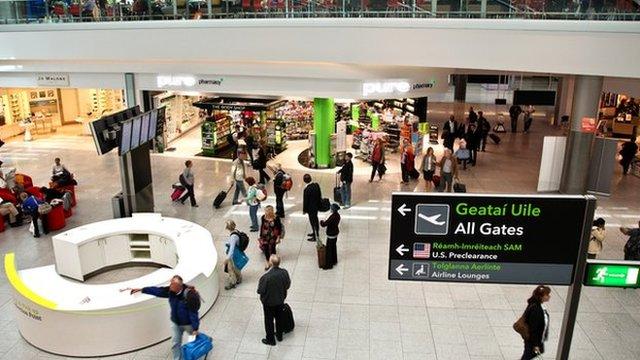UK tourism to Ireland in 'freefall'
- Published
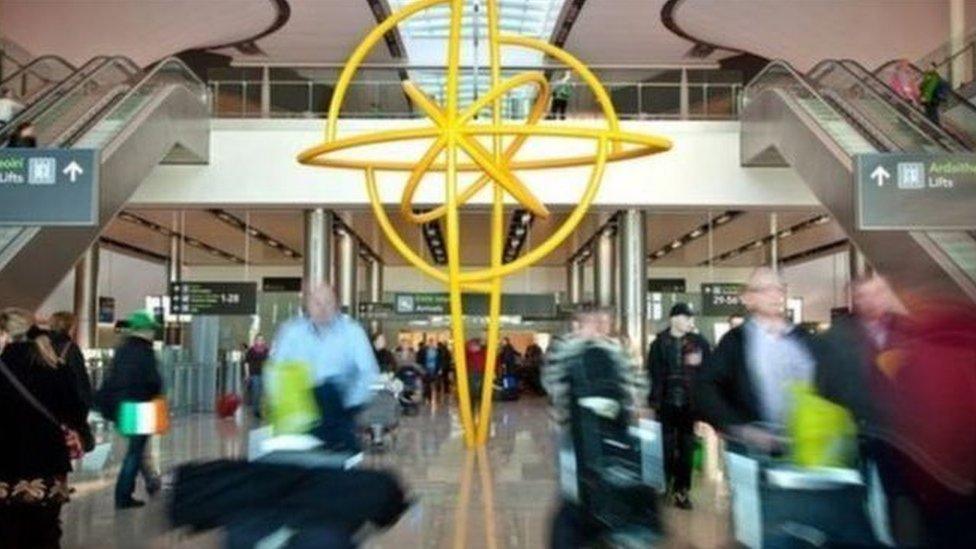
Mr Toland said Dublin could ultimately face greater competition from UK airports.
The chief executive of the organisation that runs Dublin Airport has said that Ireland is experiencing a "freefall in tourism from the UK" as a result of sterling devaluation.
Sterling fell sharply in value against the euro after the Brexit vote.
As a result, eurozone countries are more expensive for UK holidaymakers.
Kevin Toland told an Irish parliamentary committee that UK traffic to Dublin airport is "falling like a stone".
He added that the airport is seeing good growth from other markets.
Mr Toland said the DAA, the body that runs the airport, is "very, very exposed" in the event of a hard Brexit as 39% of its traffic is to and from the UK.
The UK is currently part of the EU's Open Skies arrangement which gives all EU airlines the right to fly between member states and domestically within member states.
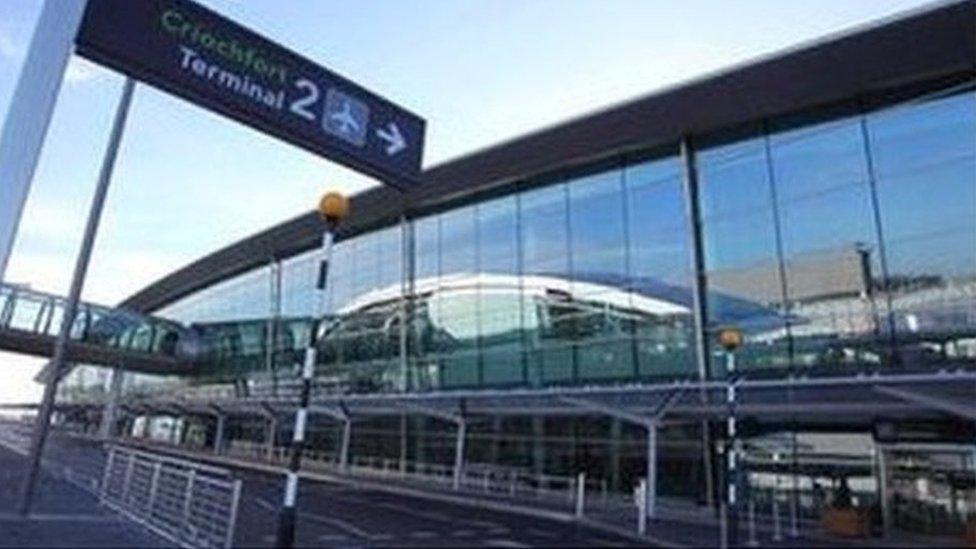
The UK will need to agree a new bilateral aviation agreement with the EU due to Brexit
That arrangement is ultimately governed by the European Court of Justice (ECJ) and the current British government has ruled out submitting to the authority of the ECJ after Brexit.
That will mean the UK will need a new bilateral aviation agreement with the EU.
However, if one cannot be agreed before March 2019 there could be disruption to flights.
Mr Toland said an aviation agreement needs to be reached quickly because airlines do not want to be in a position where "they will be selling a service they can't deliver".
He said that some airlines will begin making decisions about routes in the spring of 2018.
Mr Toland said the UK appeared to have "essentially missed" the importance of aviation matters after Brexit and was only now engaging with the detail.
He added that Dublin could ultimately face greater competition from UK airports.
"They've allowed their air capacity to be gridlocked for 40 years. Post the Brexit vote they've woken up."
- Published26 January 2015
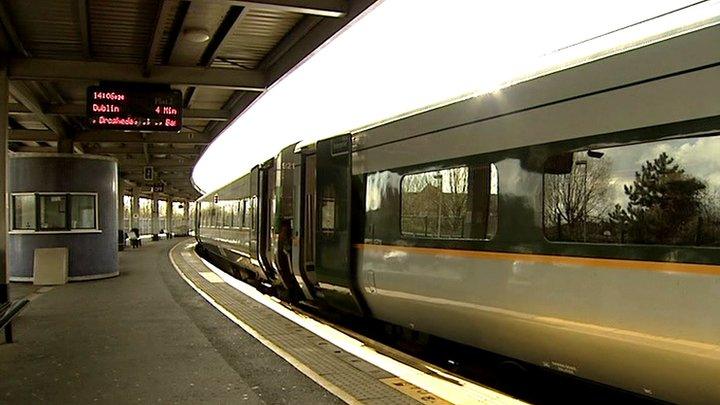
- Published27 October 2016
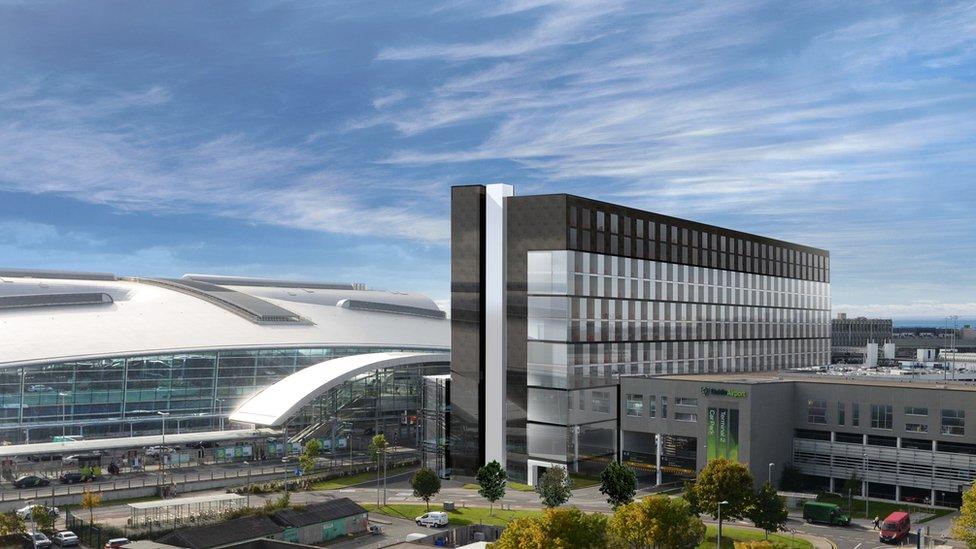
- Published14 May 2015
